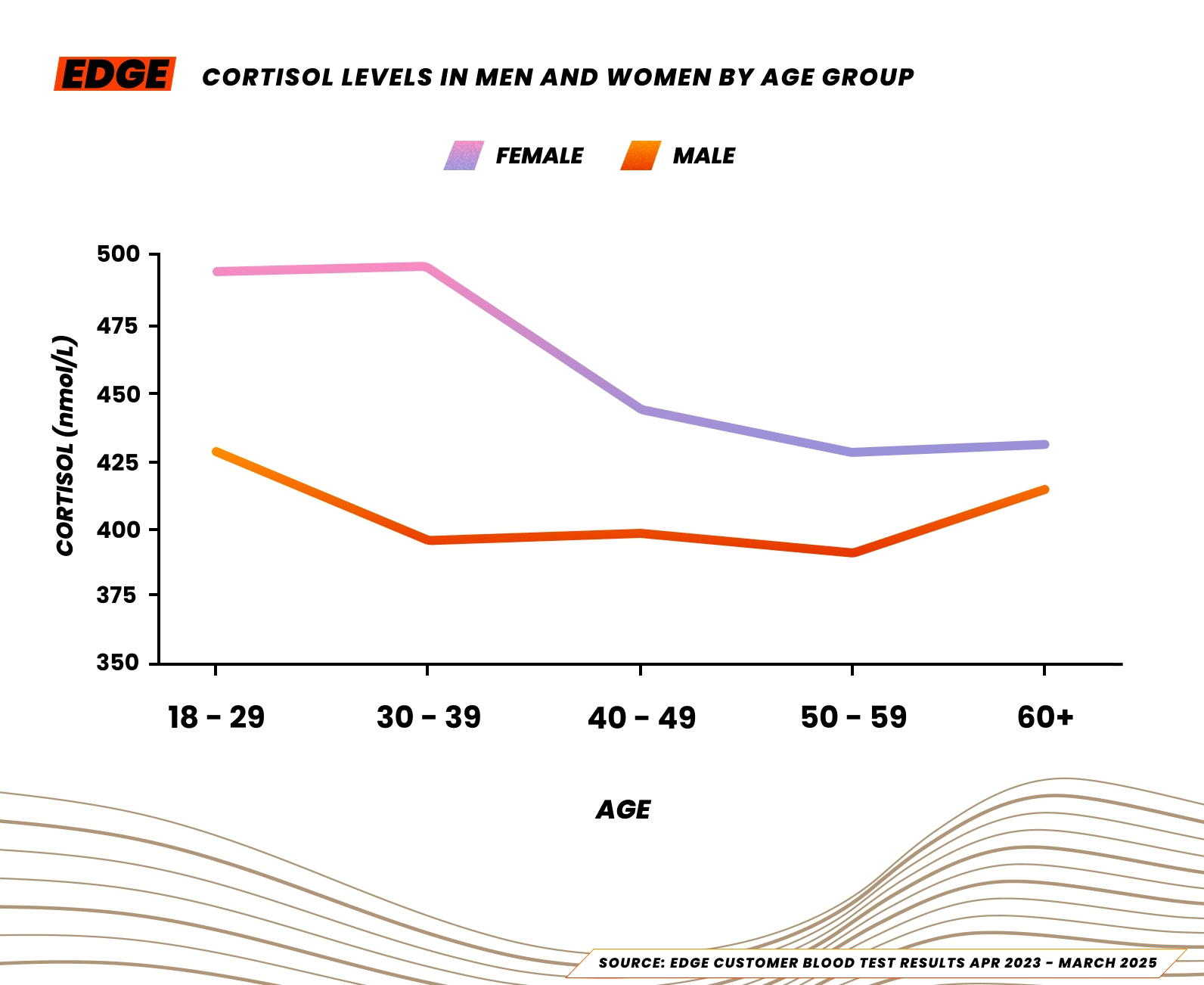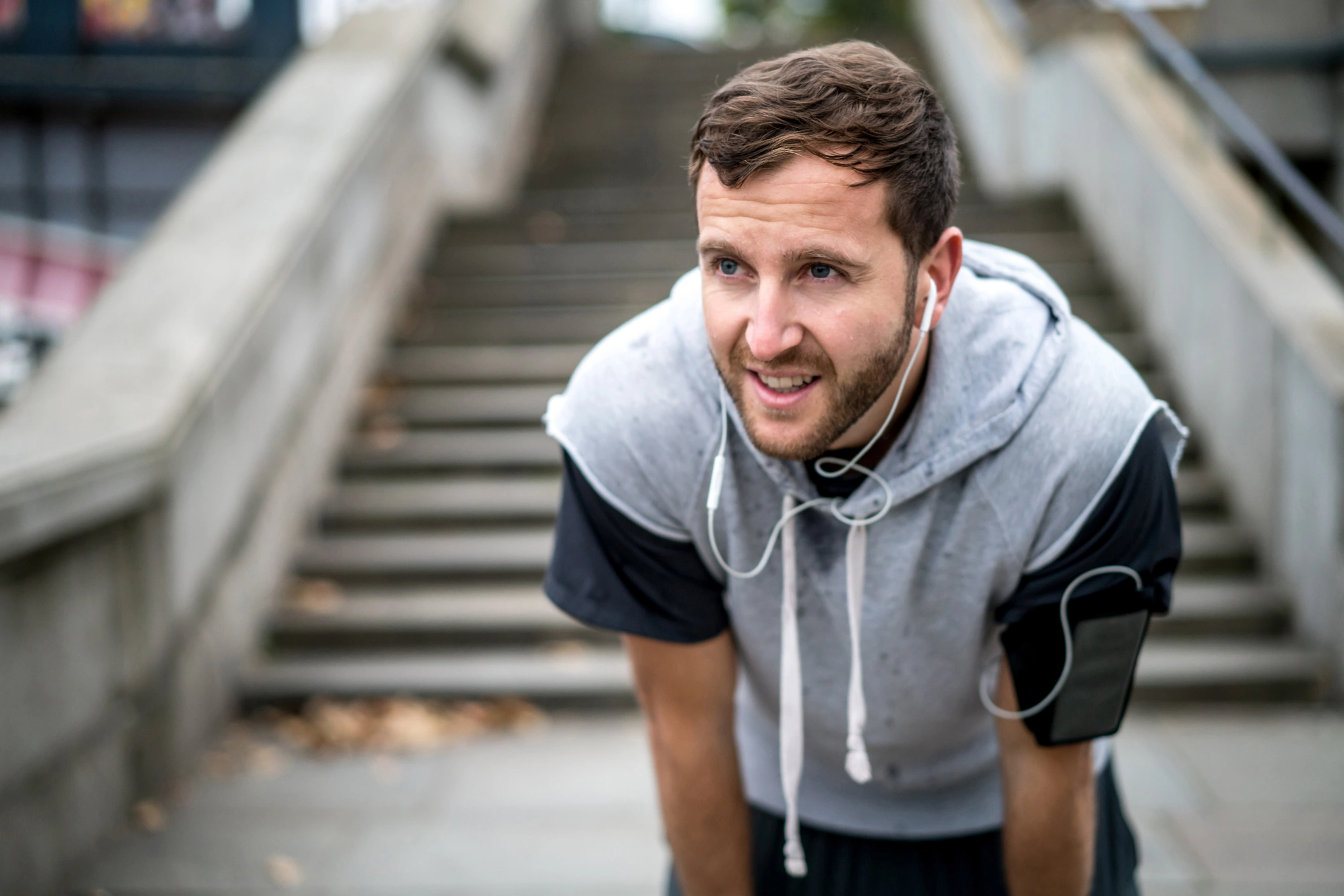What is Cortisol & why is it important for athletes?
1 min read
Published on
May 22, 2025
Written by
EDGE
Share this article
What Is Cortisol?
Cortisol is your body’s primary stress hormone and is essential for managing energy, inflammation, and recovery. For athletes, cortisol is a double-edged sword: too little and your body can’t respond to stress; too much and it starts to break down muscle, increase fatigue, and hinder performance.
Understanding and managing cortisol is key to unlocking peak performance.

"Cortisol plays a role in energy regulation, stress response and recovery. Elevated or suppressed levels can indicate overtraining or poor adaptation to training load. I recommend testing in the morning when levels should naturally peak, and repeating every 3–4 months during intensive training blocks. Pairing cortisol with testosterone and hs-CRP offers deeper insight into how your body is coping hormonally and physiologically with training demands."
The Good Side of Cortisol
Short-term spikes in cortisol (during training or competition) help mobilise energy and sharpen focus. It’s what gives you that edge under pressure. However, problems arise when cortisol levels stay high for too long.
The Dangers of Chronic High Cortisol
-
Muscle Breakdown
Prolonged high cortisol breaks down muscle tissue for energy, which can limit gains, slow recovery, and increase the risk of injury.
-
Fatigue & Burnout
Cortisol imbalance can lead to constant tiredness, poor sleep, and burnout.
-
Impaired Focus & Mood
Elevated cortisol affects memory, concentration, and emotional regulation.
-
Injury Risk
Chronic stress and high cortisol levels can weaken connective tissue and bone density, increasing the chance of stress fractures or strain injuries.
What are normal cortisol levels for athletes?
We looked at blood test data from EDGE customers and found the median cortisol levels for men and women are 400 nmol/L and 468 nmol/L respectively.
Here is a breakdown of cortisol levels by age and gender:
| Table 1: Cortisol Levels in Men and Women by Age Group (nmol/L) | ||
| Age Group | Female | Male |
| 18-29 | 488 | 426.5 |
| 30-39 | 491.5 | 391 |
| 40-49 | 446.5 | 399 |
| 50-59 | 426.5 | 384 |
| 60+ | 428 | 417 |
Source: EDGE customer blood test results Apr 2023 – March 2025.
The labs we used to analyse blood samples state a healthy range for active B12 is between 166 nmol/L and 507 nmol/L.

Why Test Cortisol?
Cortisol levels fluctuate throughout the day and are influenced by physical training, sleep, diet, and emotional stress. Testing helps you:
-
Spot early signs of overtraining
-
Pinpoint the cause of fatigue, poor recovery, or underperformance
-
Optimise your training schedule and recovery windows
-
Tailor your nutrition and rest to support hormonal balance
What Influences Cortisol Levels?
-
Sleep
Lack of quality sleep raises baseline cortisol, which in turn affects muscle repair and mental clarity.
-
Training Load
Heavy, continuous training without proper deloads keeps cortisol chronically high — one of the main causes of athlete burnout.
-
Nutrition
Low-carb diets or under-fuelling can raise cortisol. Strategic carb intake around workouts helps regulate it.
-
Recovery & Mental Stress
Mental stress matters just as much as physical load. Active recovery can help lower cortisol and improve performance.
Managing Cortisol for Peak Performance
-
Prioritise Sleep – 7–9 hours per night to support hormonal recovery
-
Balance Training – Mix intense sessions with active recovery
-
Eat Smart – Include healthy carbs, omega-3s, and magnesium-rich foods
-
Schedule Downtime – Reduce emotional stress and allow your nervous system to reset
-
Test Regularly – Understand your personal stress response and adjust accordingly
In Summary
-
Supports energy production during training
-
Chronic elevation breaks down muscle, causes fatigue, and impairs focus
-
Testing reveals if you're under-recovering, overtraining, or not fuelling enough
-
Managing cortisol is key to consistent performance and long-term health
Check Your Cortisol Levels
Want to train harder and recover better? Start by testing your cortisol levels — and give your body the balance it needs to thrive.
Get 10% off your first order
Want regular tips on how to make the most of your results? Join our newsletter and we'll give you 10% off your order!
Get the knowledge
Get expert advice to help you improve your results.
Go to our knowledge center


